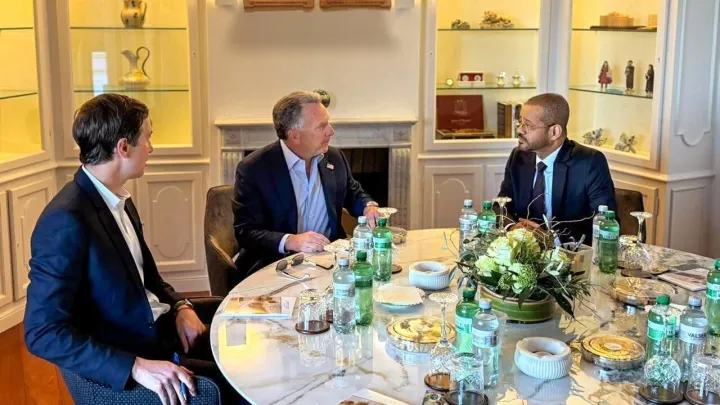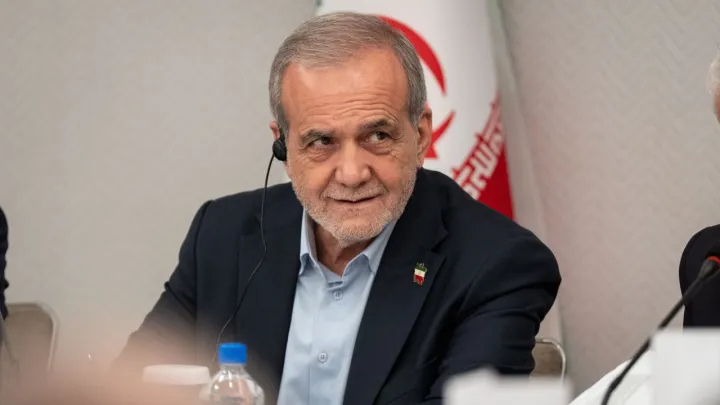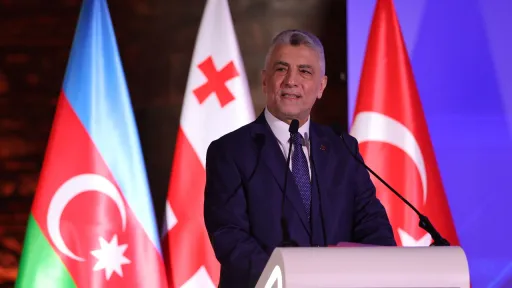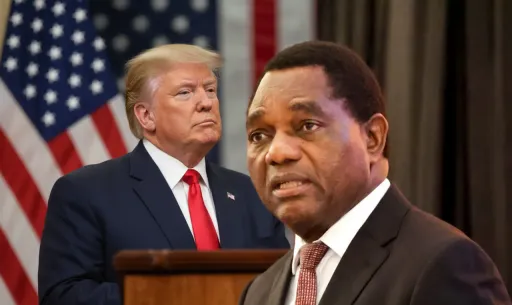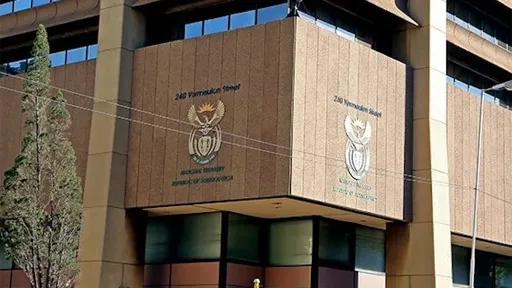By Coletta Wanjohi
Sidi Otieno, a farmer in the Migori region of Southwestern Kenya, isn't schooled in the dystopian interpretations of a world on the brink of an apocalypse brought on by climate change. Neither is he familiar with the nuances of terminology such as the "El Nino effect", "carbon footprint", or "thermal expansion".
What Otieno and millions of others like him experience and acknowledge is the inevitable impact of climate change on their lives.
"When it rains these days, it rains too much, damaging the crops. Also, when the rain stops, the sun is too harsh. Everything is extreme," he tells TRT Afrika. "When I think about climate change, the first thought is of farmers like us getting frustrated."
Weather patterns becoming unpredictable means farmers cannot plan out the season, affecting productivity and profits.
"Until a few years ago, we knew that the rains begin in the year's fourth mo. We would prepare our farms in time to sow, but the rainy season can now get delayed by weeks," Otieno explains.
"In the worst-case scenario, it might not rain at all when you need the skies to open up, which affects crops like maise that take long to plant and harvest."
Walk the talk
Discussions on climate change have dominated global platforms for a long time, with even the United Nations General Assembly listing it on top of its agenda for 2023.
Climate change was also the focus of discussion when leaders of the continent congregated in Kenya's Nairobi from September 4 to 6 for the first-ever Africa Climate Summit.
The message is clear: Africa is looking for workable solutions to the challenge of climate change, which threatens the livelihood of its citizens.
The hitch is that most discussions so far have been confined to fora of leaders and large organisations. Franklin Okinya Obonyo, another Kenyan farmer living through the impact of climate change on his livelihood, wonders if his opinion counts for anything.
"For me, climate change is related to the fact that we are no longer using indigenous seeds," he says. "This makes us produce crops only once from seeds we plant."
Indigenous systems allow a farmer to replant seeds more than once. For instance, after harvesting maise, a farmer sets aside some of the harvested produce to plant these again. Artificial seeds, on the other hand, have a one-time yield.
A law on seeds and plants in Kenya prohibits the sharing, exchanging or selling of uncertified and unregistered seeds.
This kills the tradition of farmers sharing seeds from a harvest to enable continuity of good yields within the community.
"We cannot have enough food supply if we use what they call certified seeds. These seeds are also weak in terms of withstanding changes in weather. Moreover, they are giving us genetically modified food, which we do not want," Obonyo tells TRT Afrika.
Beyond farming
Irene Mwikali is endearingly referred to as "Mama Yao" — slang for "tough woman" in Kiswahili — by members of the group she leads.
Given the demanding task she has taken upon herself, it is an apt appellation to raise awareness about climate justice among the women of Mathare, an informal settlement in Kenya's capital Nairobi.
"When I hear climate change, I relate it to in the context of human rights. There is no climate justice without human rights, especially for us women," says Mwikali.
She explains to TRT Afrikathat women bear the brunt of climate change in these informal settlements, even if indirectly.
"A man comes home without enough food, or no food because food prices and supply have gone up as a consequence of farmers producing less because of climate change. When the wife asks or complains, she gets beaten up or struggles to find an alternative for her children," says Mwikali.
"When I hear climate change, I also think about how we do not have enough food to eat nowadays. In our areas, people have to ration because food is expensive."
Voice of the young
When Kenya hosted the Africa Climate Summit, Dereva Mutua and other artists carried their art boards to public space. They provided brushes and paint for people to write their climate-change messages.
"When I think about climate change, I think about urbanisation and how our leaders don't seem to see the impact it is having on the environment," he says. "All the development and industrialisation around us may be good for the economy, but they also pollute our environment. Trees are being cut for buildings to be constructed."
A fellow artist, Fredrick Odhiambo, sees most climate-change discussions being focused on the development different countries are looking for, albeit without teaching citizens how not to damage the environment.
Solutions from citizens
African leaders at the Nairobi summit proposed different solutions to combat climate change. More such resolutions are emerging from the 78th session of the UN General Assembly.
"When leaders hold big meetings, they need to consider involving ordinary citizens like us to be part of the discussion so that we can tell them, in practical terms, how climate change affects us," says Otieno.
"Many resolutions are made without seeking our opinion. We don't hear them mentioning clearly how the support that Africa is lobbying for from developed nations will trickle down to the communities striving to plant trees and keep the environment safe."
Mwikali believes women should be at the centre of the narrative. "How will our leaders make resolutions that uplift women in informal settlements affected by climate change unless they don't call us to tell them how?" she asks.
Artist Mutua couldn't agree more with the clamour for greater people's participation in discussions that influence policy-making to counter climate change.
"Many young people don't even understand what climate change is – they think it's a matter for only those who are very educated," he says.
"Our governments must increase awareness because, as we move forward, it will be everyone's battle to fight."
➤Click here to follow our WhatsApp channel for more stories.


